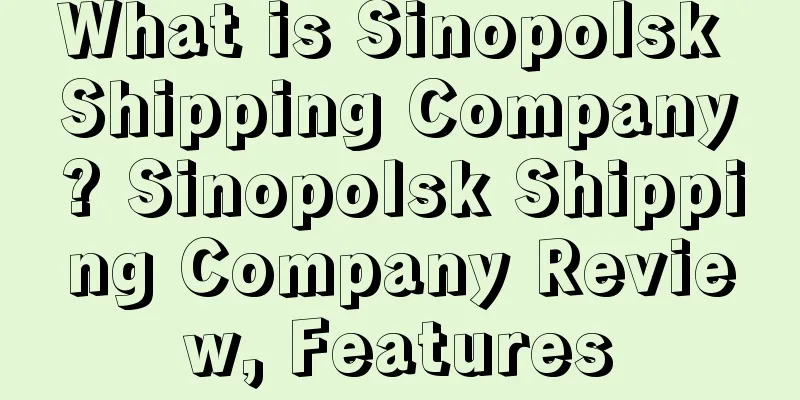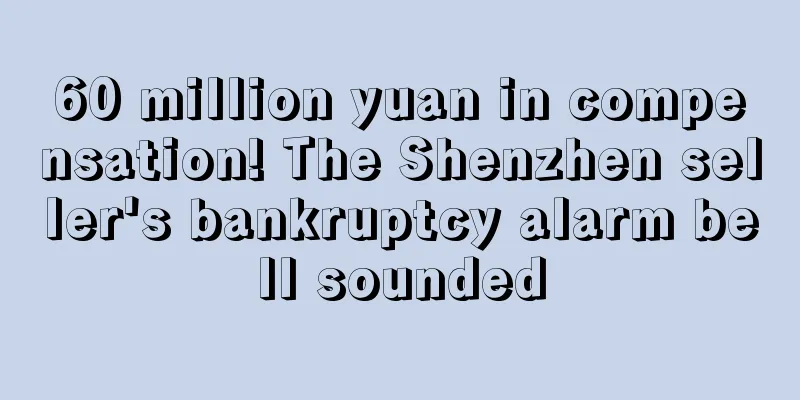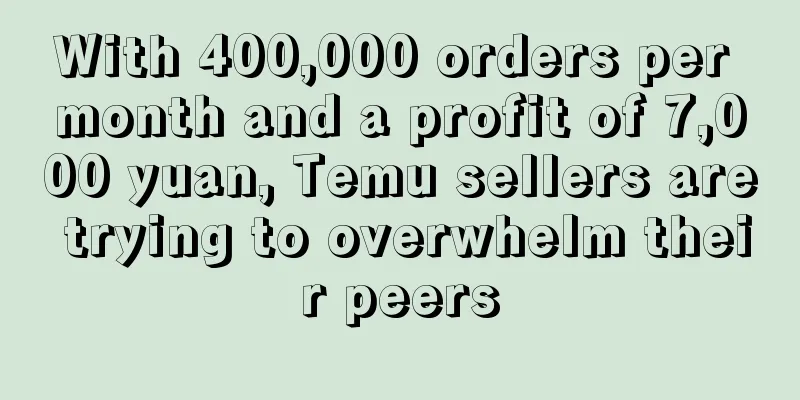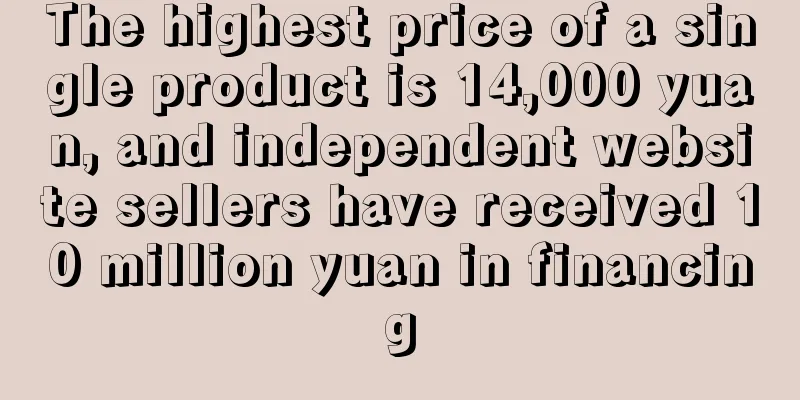Too much! Another freight forwarding company in Shenzhen went bankrupt
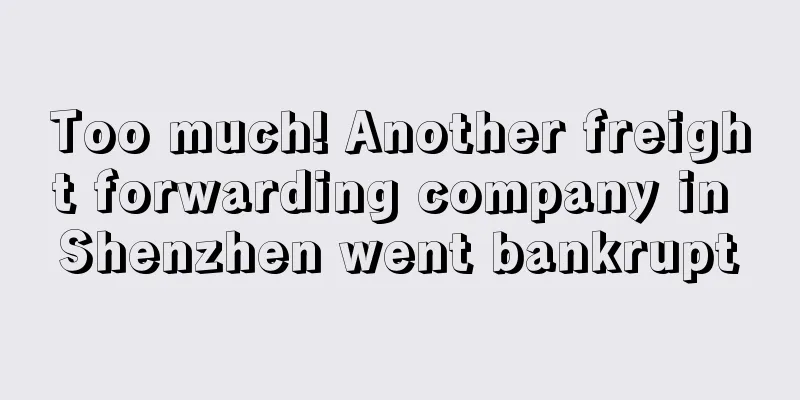
|
This week, a freight forwarding company in Shenzhen notified its customers that several of its containers had been inspected and the company was unable to pay the high handling fee of nearly 2 million yuan, so it asked the shipping customers to share the cost.
Industry insiders believe that this company is in a similar situation to Quanyi, which claimed in June that its capital chain was broken and asked customers to raise 4 million yuan to redeem the goods. The problem lies in the "European double clearance and tax package", which is a major reason why freight forwarding companies have frequently collapsed this year and a major hidden danger for some European logistics companies.
Logistics to the United States is also not calm. As shipping time becomes faster and faster, operations such as "taking Mason and using Zim" are becoming more and more common. When questioned about changing channels, some freight forwarders claim that the containers have been inspected. Is the "inspection sheet" provided by the freight forwarder the gold standard for confirming delays? How can sellers distinguish between the real and the fake to avoid being cheated?
As sellers' shipments decline, the internal competition in the freight forwarding industry continues to escalate, and low prices sweep the main channels of major markets. The financial pressure on freight forwarding companies has doubled. Once a problem occurs, it may be a complete loss, affecting the sellers. How can sellers avoid unreliable freight forwarders? Some logistics professionals have given guidance.
Freight forwarding companies have fallen into the same trap
On Monday, a Shenzhen logistics company notified its customers that six containers were inspected at the company's backend, and the handling fee for each container was 300,000 yuan. However, due to insufficient funds, the company temporarily handled the first container, and the company itself paid 100,000 yuan, and the remaining amount was distributed to each customer according to the corresponding kilograms.
The company calculated that after paying the original freight, these customers would have to pay an average of 14 yuan per kilogram for this, and said that this was "considered as a temporary loan from the company to the customers." The bank account information used for the transfer was posted below the notice.
This operation shocked the industry: after paying the normal shipping fee, they now have to pay a "ransom" that is higher than the shipping fee . These sellers and customers have really become the victims. And this company's "borrowing money" is so justified that it is also amazing.
According to public information, the company was established in March last year and is still a new company with a registered capital of 5 million yuan, but the paid-in capital is 0. A week before the incident was exposed, the company had just changed its general manager, person in charge and executive director.
How did this thunderstorm happen?
Li Ting, a senior logistics expert in the industry, said that like Quanyi in the cross-border circle this year, this freight forwarding company also stepped on the landmine of double customs clearance and tax package in Europe. The solutions of the two companies are also highly similar. At that time, a large number of Quanyi's cabinets were piled up at European ports, resulting in high storage fees, and the company's capital chain was broken and unable to handle it, so it raised funds from customers in the hope of getting the cabinets back, and the required customs clearance fees were as high as 3 million to 4 million yuan.
Shenzhen freight forwarder Jack Chen revealed more details. "Most customs clearance in Europe is done in Belgium or Poland. Large-scale inspections occur in Europe every year. This year, it seems that there was an inspection in Belgium, which led to the investigation of all the accounts of tax arrears and tax evasion of this company. This time, they were punished for multiple crimes. This is why they need 300,000 yuan for handling fees for one cabinet. Normal customs clearance does not require so much money."
Why are most of the freight forwarders that have gone bankrupt in the market related to the European market?
Although tax evasion exists on every route, Europe is stricter in this regard, and its customs clearance process is much more complicated than that of the U.S. Customs. Europe has strict laws and taxes, and the inspection intensity of each of the 27 EU countries is different. Some freight forwarding companies take advantage of this loophole by under-reporting and finding different countries for customs clearance.
The US Customs has a huge volume of customs clearance, and the probability of under-declaration being discovered is relatively small. If under-declaration is discovered, the freight forwarding company only needs to pay the taxes for the current few cabinets, and will not be included in the total account. However, in Europe, as long as a logistics company is found to have under-declared, the customs will trace its previous violations and then root them out. For this reason, once a freight forwarder in the European market is discovered, it will be a big hole that is difficult to fill and cannot be resolved peacefully.
"This freight forwarder is a typical example. They received goods with double clearance and tax included from the sellers and declared them illegally, but were suddenly seized by a customs office in Europe," said Li Ting.
Small freight forwarding companies are mostly asset-light, with simple office facilities, only three to five or dozens of business personnel, and weak risk resistance. When such a container is inspected, they tend to "borrow money" from customers or share the responsibility, only coordinating without bearing the cost.
However, as the industry has complained, this plan is not reasonable, and sellers and customers may not necessarily accept it. If the product volume is not high, the value is not high, or the sales period has passed (such as holiday products), the seller is likely to abandon the goods; but if the product value is high, some sellers may pay to redeem the goods.
In addition, even if the seller can come up with the ransom money, there is no guarantee that the goods can be returned intact. "If the goods are really detained at customs, the freight forwarder may not be able to handle it even if you pay the money. In addition to the previous tax evasion investigation, it also depends on whether the goods involve counterfeit brands or contraband. If not, it is easy to solve it by finding a lawyer, but if it is a counterfeit brand, once it is discovered, there is basically no chance to get it back." Li Ting said.
Currently, the European freight forwarding market is in turmoil, and the gray operations in logistics to the United States have also begun to increase significantly.
"Channel change" is common, and the goods of Fameisen are sold to Zim
This year, US ports have gradually resumed normal operations, the congestion has been greatly improved, and the overall market shipment volume is relatively small, which has greatly improved the shipping efficiency. It is not uncommon for sellers to have goods arrive at the warehouse before they are ready to put them on the shelves, but this has given some freight forwarding companies the opportunity to operate in secret.
At present, the market price of Meisen ranges from 6 yuan/kg to 10 yuan/kg. Why is the price difference so large? In addition to the company creating profit margins by matching the heavy cargo in the cabinets and the distance of the destination port, a freight forwarder also told another inside story.
"Many are bought in at low prices and shipped out through Zim. Customers can't find out. If there are delays, they just say it's an inspection. Just P a inspection form, and there's nothing to be afraid of. This is what we do now. Otherwise, where would the profit come from? Direct customers squeeze the profit so much that we can only make a little bit by doing this. We have included both regular and overtime work this week. There are a lot of people doing this, so don't panic."
Jack Chen said frankly that it is "too common" in the industry to send Matson and then Zim, because the delivery time of Matson and Zim is almost the same, but the price difference is quite large.
The difference between the receiving price of Matson and Zim is 2-3 yuan/kg. In terms of timeliness, Matson's regular ship's sea voyage is 11 days, the overtime ship's is 12 days, and Zim's sea time is 14 days. The sea time difference between the two channels is 2 days. Now that the ships are not blocked, the speed of picking up containers at the destination port is very fast. The comprehensive time difference between the two is generally within 2-5 days.
How to tell whether your goods are actually shipped by Matson or Zim? Jack Chen said that if there is a delay, an inspection sheet can solve any problem. The seller will be told "Sorry, your cabinet has been inspected", and then the other party will give a P-ed inspection sheet.
"In fact, there is no inspection form. The U.S. Customs does not have an inspection form."
So what is the inspection form provided by the freight forwarding company? When encountering an inspection, some freight forwarding companies will provide a screenshot showing the cabinet being inspected, which the seller can use to determine whether it is a real inspection.
"Inspection can only be done by querying the container number in the customs declaration system. The system will display the information that your container has been selected for inspection by the customs. Only in this way can the truth be found." But there are still two problems: 1. There are many channel switching operations at present, and many so-called inspection orders are forged screenshots of shipping companies; 2. Even if it is a real inspection, the seller cannot confirm that his goods are in the container, that is to say, the container number obtained by the seller is not necessarily real.
In general, it is difficult for sellers to completely avoid the pitfall of "Fameisen being taken away by Zim".
Sellers use Matsun because its delivery time is the fastest and most stable. However, this year every shipping channel is very fast. COSCO and ZIM can also arrive at the port in less than 20 days. Therefore, the demand for Matsun in the cross-border industry has decreased a lot this year.
Li Ting believes that there are relatively few genuine regular Matsun ships on the market, and not everyone can get one. Many Matsun ships in the industry are fake. Many people say that their regular Matsun ships arrive in 12 days, but in fact, if Zim is faster, it can also arrive in 18 days. A few days difference in time does not have much impact, so many people do these speculative things in order to maximize profits.
In addition to profit considerations, if the freight forwarder has a container that is not full, in order to reduce losses, some goods from other channels will be split and put in. "It is mainly because the volume of goods during this period is too small, which leads some companies to go in this direction."
Under this trend, the trust of sellers in the Matson channel has declined, and the number of sellers who have taken the initiative to use Zim has increased. "Recently, I have been using Zim, and rarely Matson. Zim takes about 25-30 days, and rarely exceeds 30 days," said a seller.
A series of outrageous operations by freight forwarders have made sellers more cautious in shipping, and the frequent bankruptcy incidents this year have sounded the alarm for sellers.
When will the European double-clearance tax package "threat" end?
Li Ting introduced that the culprit behind the collapse of many freight forwarding companies is the double-clearance and tax-package model.
Double Clearance and Tax Package refers to customs declaration in the exporting country + customs clearance in the importing country + delivery after tax payment. It is a service provided by freight companies for some countries and routes. This channel is usually suitable for sensitive goods or goods that customers cannot clear customs.
Li Ting said that there are three main reasons for the frequent failures of the double-clearance and tax package service in Europe: first, compared with other markets, European legal and tax affairs are very strict; second, there are 27 countries in Europe, and the inspection intensity of each country is different; finally, it is difficult to do the so-called tax package in Europe, and it is easy to go wrong. In fact, there are violations in the double-clearance and tax package, mainly in the following two ways.
Trick 1: Find different countries to do customs clearance. For example, in the 27 countries of the European Union, many freight forwarders go through other small or remote countries to do customs clearance, and then ship the goods to other countries in the European Union.
Trick 2: The freight forwarder registers a company in the EU and does tax filing business by underreporting or underreporting. For example, if there were originally 100 items, he might only report 10; if there were originally 100 yuan, he would report 1 yuan.
"There is a gray area in both double clearance and tax inclusion, which is equivalent to the freight forwarder being the one reporting the tax. Underreporting, missing reporting, and stealing all exist. Otherwise, how can the freight forwarder make money? Because the price of the container in the first leg is almost transparent, but why there are so many low prices on the market, it is because of the tariff. The freight forwarder reports it much lower than normal. For example, the tariff difference between a container reporting 1,500 US dollars and 800 US dollars is quite large." Jack Chen said.
Freight forwarders use under-reporting and missing reports to make money, but the probability of being inspected is much higher than normal customs declaration. Li Ting further said that in order to avoid being inspected, freight forwarders will repeatedly register companies and use different company names for customs clearance, but this does not mean they can rest easy, as customs clearance by different companies will still be inspected.
For sellers, they wanted to use some cheaper logistics channels to save costs, but after the freight forwarder went bankrupt and was investigated, they had to pay high fines, including detention fees, customs clearance fees, attorney fees, etc. It was equivalent to being bitten back by the seller for being greedy for cheapness, and the loss outweighed the gain.
Once the freight forwarder is found to have underreported or underreported its products, it will cause a company to face a significant blow, especially when profits in the logistics market are gradually declining.
In Jack Chen's opinion, if freight forwarders do not use low prices, it will be difficult for them to receive goods and they will not be able to keep up with the new changes in the market. If the receiving price is low, they can only report less, which may have attracted the attention of relevant departments. Therefore, the overall inspection in Europe this year is very strong, and the freight forwarders will be traced back to the previous underreporting and omissions.
Freight forwarding default incidents happen frequently. How to avoid being scammed by freight forwarders?
Since the beginning of the year, there have been frequent incidents of freight forwarding defaults. Why are there so many defaults this year? Senior logistics professionals in the industry believe that it is mainly due to internal competition and the low threshold of freight forwarding.
Jack Chen said frankly that freight forwarders are too aggressive and shipments have been greatly reduced this year. As a freight forwarder, the normal cost is about 10 yuan, but because there is no goods, if there is a seller with a large shipment volume, the freight forwarder will also ship the goods at a price lower than the cost price. If the company cannot receive the goods, the employees will not be able to make a living and can only accept the goods at a low price, so many logistics companies are also losing money this year.
According to One Shipping, the Port of Long Beach recently released its latest port container throughput statistics report. The report pointed out that due to a sharp decline in import volume and the transfer of imported goods to the eastern United States, the import container throughput of the Port of Long Beach fell by 23.7% to 293,924 TEU in October.
In September, U.S. container imports fell 11% year-on-year to 2.21 million TEU containers and fell 310,000 TEUs month-on-month, the largest month-on-month drop since the outbreak of the epidemic in February 2020.
The Port of Long Beach and Los Angeles are two major gateway ports on the west coast of the United States and are also the main ports for container imports in Asia. The cargo volume of the ports can also indirectly reflect the domestic shipment volume to the United States, which shows the difficulty of freight forwarding in receiving goods.
The logistics market was good and the overall profit of freight forwarders was not bad. However, the logistics market is now downward, the market shipment volume has dropped significantly, and the competition among freight forwarders is fierce. In order to receive goods at low prices, some freight forwarders will take risks and receive goods at low prices. In order to make money, they can only declare customs at extremely low prices. When too many underreports appear, the chance of being inspected will be greater, and the freight forwarder is likely to go bankrupt after being inspected.
As for the threshold of the freight forwarding industry, many people in the industry know that this industry does not require too much capital investment. One boss and two salesmen can work alone. Logistics company practitioners can also bring their families and open a husband-and-wife company if they have accumulated a few customers. After the epidemic, many people have set their sights on the fat meat of cross-border logistics and swarmed into the market. These new freight forwarders provide services to customers through various resale spaces, collect goods at low prices to attract customers, make a quick buck and then quickly withdraw, and then change to a new store to continue "cutting leeks".
These freight forwarders who have gone bankrupt seem to have a common characteristic. Li Ting believes that most of these freight forwarders are very bold. There is no price that the seller cannot think of, only the price that he dare not offer. After boldly accepting the goods at a low price, they repeatedly jump on the edge of violating the rules.
To some extent, the way cross-border sellers choose freight forwarders also provides soil for these "leek cutters". It is understood that there are many ways to choose freight forwarders for cross-border sellers. Many people are introduced by friends or believe the words of training institutions; some sellers blindly pursue low prices, which will lay the groundwork for being deceived.
As a cross-border seller, you should avoid this irrational practice when choosing a freight forwarder. Combining the opinions of several senior experts, the author summarizes the cross-border pitfall avoidance guide as follows:
First, look at the freight forwarder's qualifications. Sellers may use relevant software to check the freight forwarder's establishment time, company size, etc. If the company is small, be sure to choose carefully;
Secondly, pay attention to the paid-in capital of the freight forwarding company. Capital is a way to prove the company's strength. Make sure the freight forwarding company is not a shell company.
Thirdly, if conditions permit, you must go to the freight forwarding company for an on-site inspection to understand the company's operations and actual scale, so that you have a clear idea of the situation;
Finally, you must be clear whether this freight forwarder is a dealer. 95% of the people in the market are selling goods, not real dealers. Only dealers have the ability to provide one-stop service. From collection to loading, customs declaration, to final customs clearance and delivery, everything is controllable. Sellers must pay attention to distinguish.
It is worth noting that when cross-border sellers choose to cooperate with freight forwarders, they may fall into a misunderstanding and waste more money.
According to Jack Chen, it is difficult to guarantee the timeliness of logistics now, especially for sellers who ship during the peak season. In order to ensure the timeliness of logistics, they will choose to purchase the so-called delay compensation. This service can guarantee the seller a few days of delivery, unless there is a customs inspection. However, in many cases, the freight forwarder will secretly change the logistics channel after receiving the goods at a low price, and then inform the seller that it has encountered a customs inspection, so this delay compensation is simply dispensable. However , there are still some sellers who pay more to purchase the delay compensation service for peace of mind, but in fact, this money is not necessary at all.
From the endless bankruptcies of freight forwarders to the sellers who have fallen into traps with no tears in their eyes, practitioners in the industry chain need to give each other more sincerity in order to usher in a positive cycle. Freight Forwarding Thunder Europe |
<<: 50% off sale, are European heating products no longer popular?
Recommend
What is soulartshop? soulartshop Review, Features
soulartshop is a leading educator in polymer clay ...
The number of infections in Vietnam has surged, and many OEM shoe factories have extended their shutdowns!
According to the Vietnamese Ministry of Health: V...
Big reversal! The United States lifts the ban on Shenzhen's big sales
Previously , the US ban on China's DJI drones...
Net profit increased 375 times in the first quarter, and the big seller is going to build a factory in the United States
Jiuan Medical's revenue in the first quarter ...
Made in Cymru platform officially launched, Welsh sellers can join
Foreign media reported that a new market platform...
Spanish e-commerce sales grew 14%, faster than the global level!
European e-commerce developed rapidly in 2020 , a...
The seller has over 10,000 orders per day, Temu continues to attack
On the Temu platform, more and more sellers are s...
Small toys carry big risks, and multiple e-commerce platforms have urgently removed them from shelves!
Children's safety issues cannot be ignored. R...
Russian discount e-commerce company Fix Price raises $2 billion to go public in London
Raising $2 billion, the largest IPO ever for a Ru...
Sales soared 4000%! These three categories are the most popular on eBay Australia
According to data from the tameboy website, Austr...
What is GMO Payment Gateway? GMO Payment Gateway Review, Features
GMO Payment Gateway was established on March 8, 1...
Amazon has issued a new rule: products priced higher than MRP will be removed!
Recently, Amazon has introduced various control m...
Infringement warning! A large number of Canon infringing products were removed from Amazon in the first quarter
According to the latest announcement released by ...
What is xsolla? xsolla Review, Features
<span data-docs-delta="[[20,{"gallery"...
Toy sellers, please take a look: Etsy releases new EU toy regulations
As a category that continues to sell well, toys a...

